Are you curious about Chaga tea’s taste but caught between its flavor and health benefits?
It’s a common struggle for those wanting the best of both worlds in their teacup.
If you want to drink chaga tea you must already be aware of its potential health benefits.
So, let’s talk about the flavor aspect: what does chaga tea taste like?
Chaga tea has a unique taste that is earthy and woody. It lacks bitterness and has a smooth, mild flavor. Its taste can be described as subtle and mellow, with a hint of vanilla or caramel notes.
While it doesn’t have the strong, bold flavors of many other teas, it is appreciated for its gentle and forest-like soothing taste.
Chaga tea doesn’t carry an unpleasant bitter aftertaste, making it an appealing choice for those who prefer a mild and pleasant tea experience.
Want to learn about what other flavors go well with chaga mushroom tea?
I have some yummy flavor pairings for you!

Does Chaga Tea Taste Good?
Chaga tea tastes okay-ish even if you are not into earthy flavors.
Whether Chaga tea tastes good is subjective, as it ultimately depends on your personal preferences.
Some people find its earthy and woody flavor to be enjoyable, appreciating its smooth and mild characteristics.
It has a subtle and mellow taste, with hints of vanilla or caramel notes that can be quite pleasant to some.
But, if you’re someone who prefers stronger or more robust flavors in your beverages, you might not find Chaga tea as satisfying, as it doesn’t have the bold and intense taste that some other teas possess.
So, it’s really a matter of individual taste.
Why Does Chaga Tea Taste So?
Chaga tea tastes the way it does because of its natural compounds.
These compounds, like polyphenols, give it an earthy and woody flavor without any bitterness.
It’s got a smooth, mild taste thanks to a gentle extraction process.
The subtle and mellow taste also comes from the environment where the chaga mushroom grows, usually on birch trees.
This connection adds a bit of vanilla or caramel notes, making it stand out.
In essence, chaga tea keeps it simple, with no artificial additives and minimal processing, giving you a pure and mild tea experience.
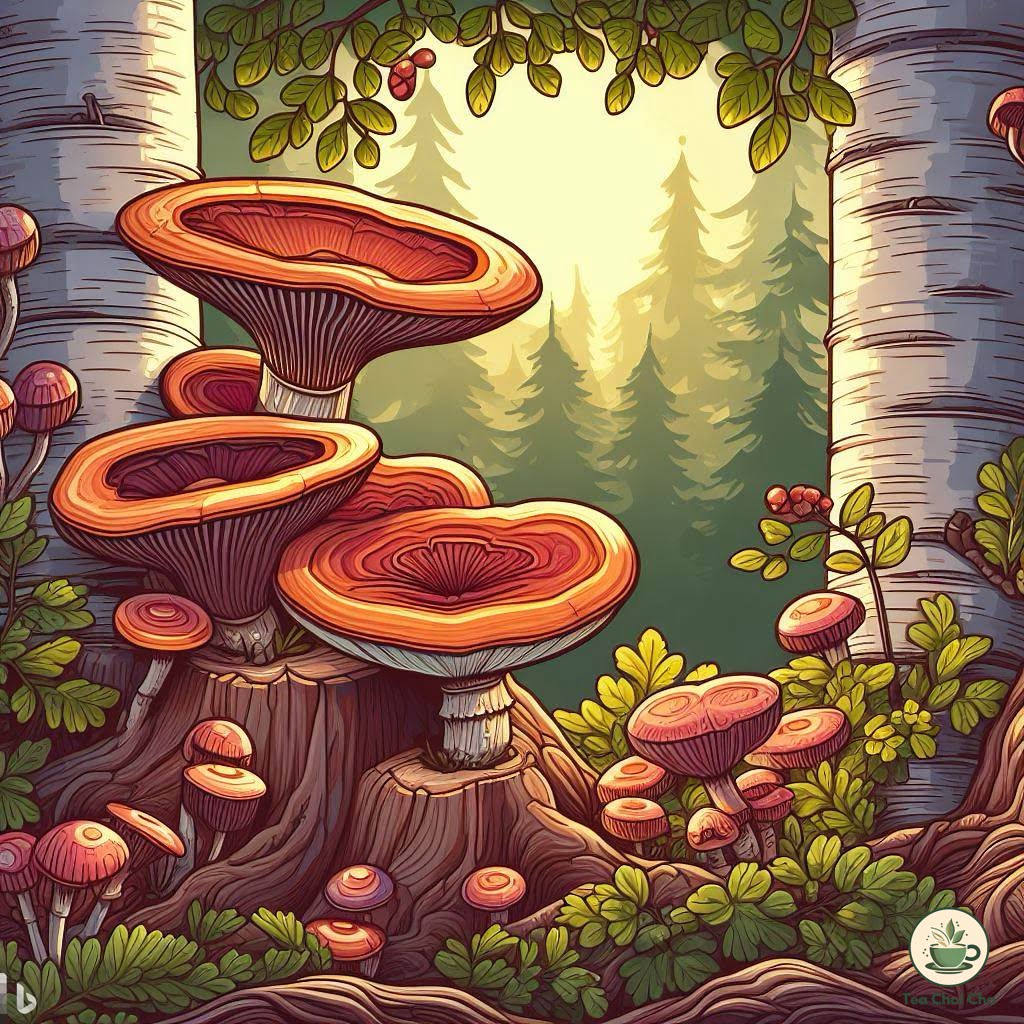
6 Different Tastes of Chaga Tea
As you sip on a cup of Chaga tea, you’ll explore a variety of tasting notes that can change based on how you prepare it, where it’s sourced, and your own preferences.
1. Earthy and Woody
You’ll notice a strong, earthy and woody taste in Chaga tea.
It’s like taking a walk through a dense forest, with its grounding and rustic essence.
The woody undertones remind you of tree bark, making it a favorite among nature enthusiasts.
2. Mildly Nutty
Surprisingly, Chaga tea has mild nutty undertones.
Picture the taste of roasted chestnuts or almonds.
If you appreciate a subtle nuttiness in your drink, you’ll find this quite comforting.
3. Subtle Sweetness
Despite being mushroom-derived, Chaga tea carries a gentle sweetness.
It’s akin to a light touch of honey, perfect if you prefer a bit of sweetness without added sugars.
4. Hint of Vanilla
For some, there’s a subtle hint of vanilla in Chaga tea.
This adds complexity and sophistication to the flavor, appealing to those who enjoy a more intricate taste profile.
5. Earthy and Delightful Astringency
Chaga tea brings a refreshing earthy astringency, similar to the pleasant pucker you get from red wine or dark chocolate.
This quality gives it a cleansing aspect that many find enjoyable.
6. Balancing Bitterness
While there is a touch of bitterness, it’s nicely balanced with the other notes.
The combination creates a smooth blend, ensuring that Chaga tea doesn’t overwhelm with bitterness but leaves a satisfying aftertaste.

8 Tips to Buy the Best Tasting Chaga Tea
When purchasing Chaga tea, start by considering the source.
Look for reliable sellers or brands that offer Chaga tea.
Ensure they source Chaga from clean and pristine environments, like the birch trees of Siberia or the forests of North America.
Authenticity and purity of the Chaga are crucial factors in getting the best tasting tea.
1. Check for Certification
Seek Chaga tea that has undergone quality testing and certification.
Look for labels such as “organic,” “wild-crafted,” or “lab-tested” to ensure that you are getting a product of high quality and purity.
Certification adds a layer of trust to your purchase.
2. Form: Powder or Chunks?
Decide on the form of Chaga you prefer.
Chaga tea is available in various forms, mainly as chunks or powdered extract.
Chunks may require more preparation, but some enjoy the process.
Powdered Chaga is more convenient and can be easily incorporated into your daily routine.
3. Read the Ingredients Label
Carefully examine the ingredients label. The only ingredient should be Chaga mushrooms.
Avoid products with additives, fillers, or preservatives.
A clean ingredients list ensures the purest Chaga flavor in your tea.
4. Consider the Packaging
Chaga tea should be stored in airtight, light-resistant containers or sealed bags.
Transparent packaging can expose Chaga to light, potentially degrading its quality.
Choose packaging that preserves Chaga’s integrity.
5. Research the Brand
Do your research on the brand you plan to buy from.
Read reviews and check for their reputation.
Brands with a history of providing high-quality Chaga products are more likely to offer the best-tasting Chaga tea.
6. Grind Size Matters
If you opt for Chaga in powdered form, consider the grind size.
Finer grinds tend to release flavor more quickly, while coarser grinds may require longer steeping for a full-bodied taste.
Choose the grind size that suits your preference.
7. Storage Conditions
Once you’ve made your purchase, ensure you keep it in a cool, dry place away from direct sunlight.
Proper storage can maintain the freshness and flavor of your Chaga tea.
8. Experiment and Adjust
Don’t be afraid to experiment with brewing methods, steeping times, and quantities of Chaga to find your perfect cup.
Everyone’s taste preferences are unique, so adjust the preparation to suit your liking.
What Flavors Pair Well with Chaga Tea
If you want to drink chaga tea with meals, here I have some food suggestions that you can pair this tea with:
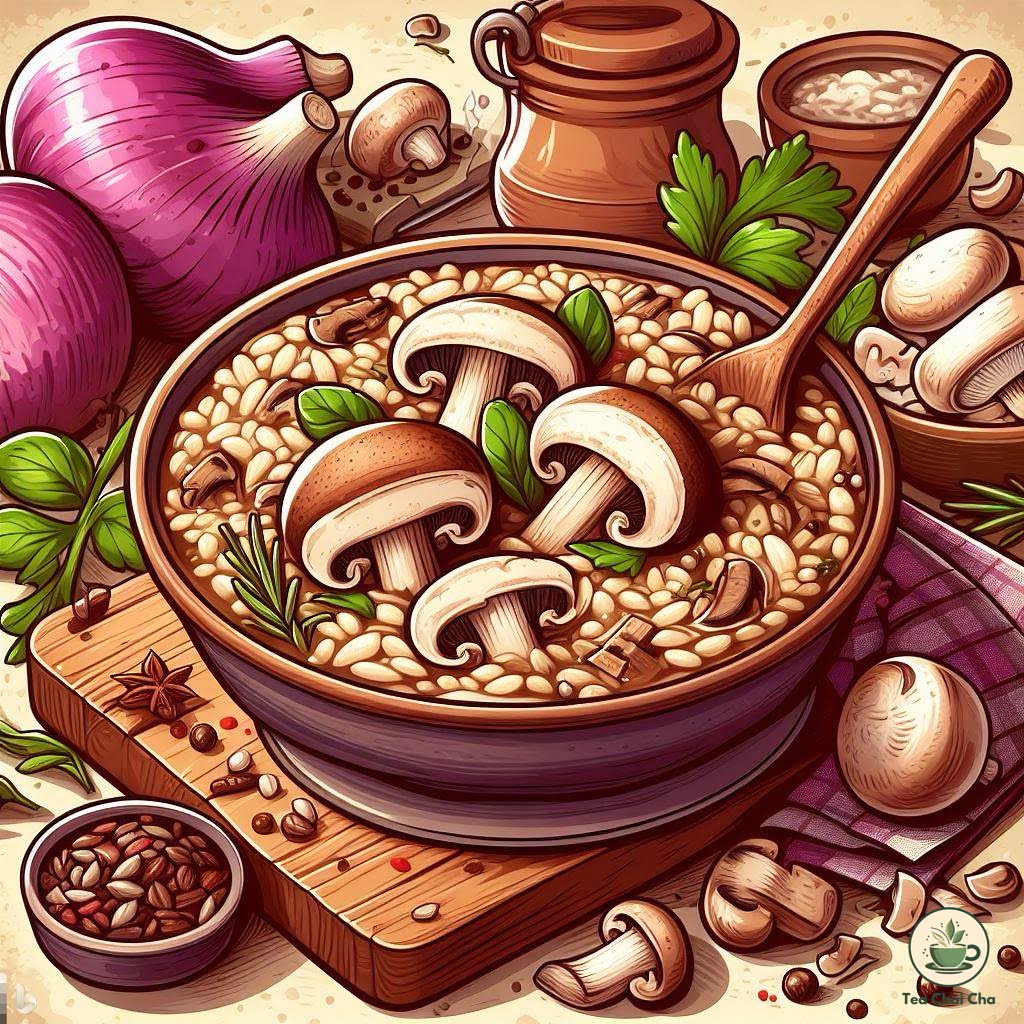
-> Savory Companions for Chaga Tea
When it comes to pairing flavors with Chaga tea, consider opting for savory and earthy accompaniments.
The robust, woody notes of Chaga tea blend harmoniously with various dishes.
A natural choice is mushroom-based dishes, such as mushroom risotto or a hearty mushroom soup.
The shared earthiness complements each other perfectly.
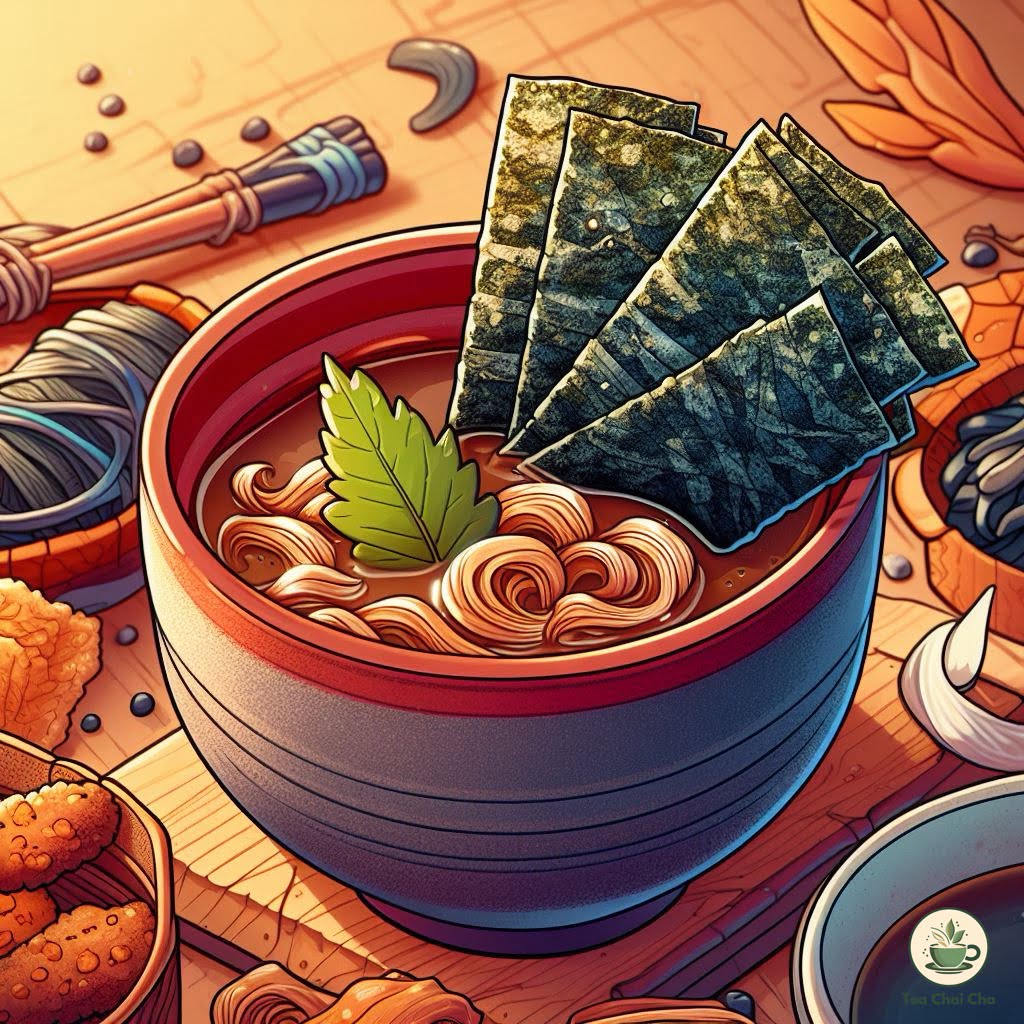
Another savory pairing to explore is umami-rich foods like miso soup or roasted seaweed snacks.
The umami in these dishes enhances the depth of Chaga’s flavor profile.
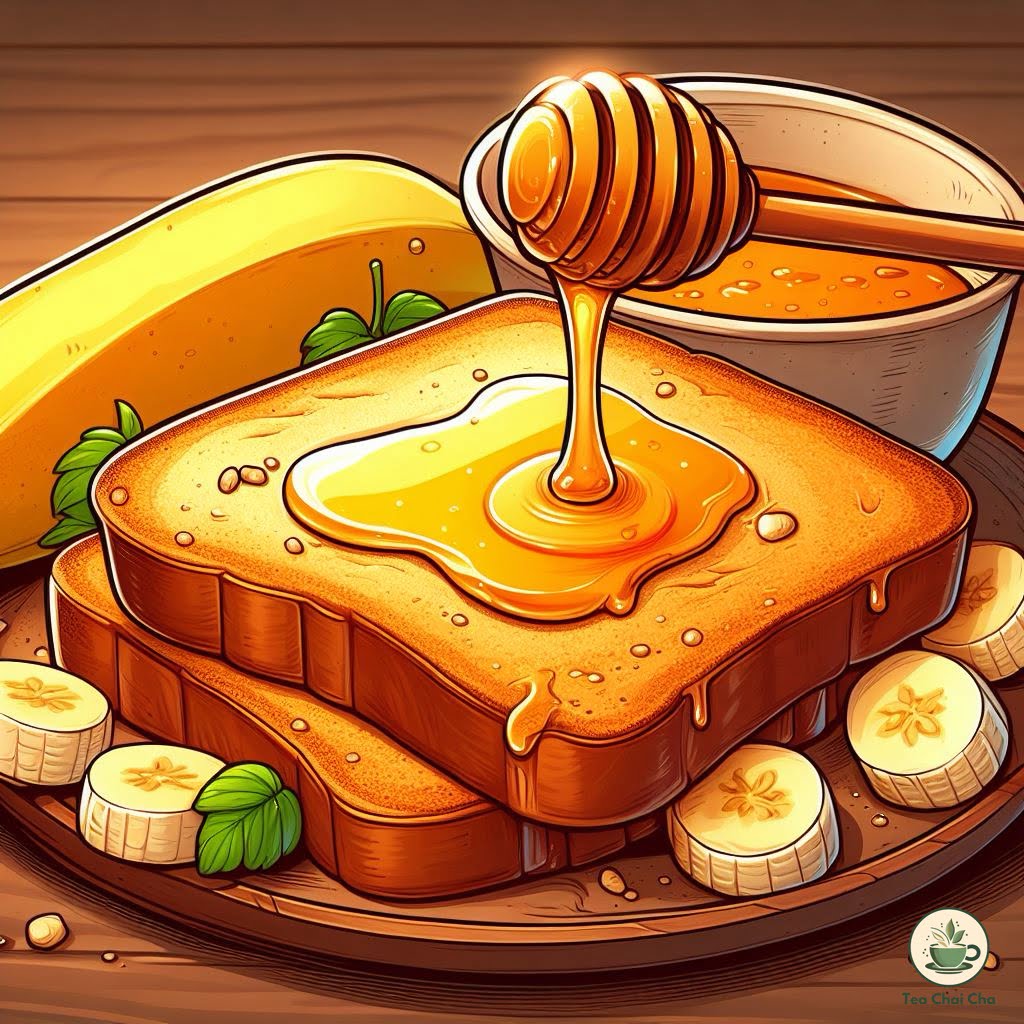
-> Sweet Harmony with Chaga Tea
For those with a sweet tooth, there are also several sweet flavors that complement Chaga tea.
Try pairing it with a honey-drizzled piece of toast or a slice of banana bread.
The mild sweetness of honey or ripe bananas balances the Chaga’s natural bitterness.
Alternatively, you can explore dark chocolate as a sidekick to your Chaga tea.
Dark chocolate’s slightly bitter and rich cocoa flavor combines elegantly with the Chaga’s earthy notes.

-> Fruity Pairings with Chaga Tea
If you lean more towards fruity flavors, consider enjoying Chaga tea alongside citrus-infused desserts.
The zesty notes of lemon bars or orange cake bring a refreshing contrast to Chaga’s earthiness.
Berries are also a delightful option to explore.
A mixed berry compote drizzled over yogurt or a berry tartlet can offer a tangy-sweet interplay with your Chaga tea.
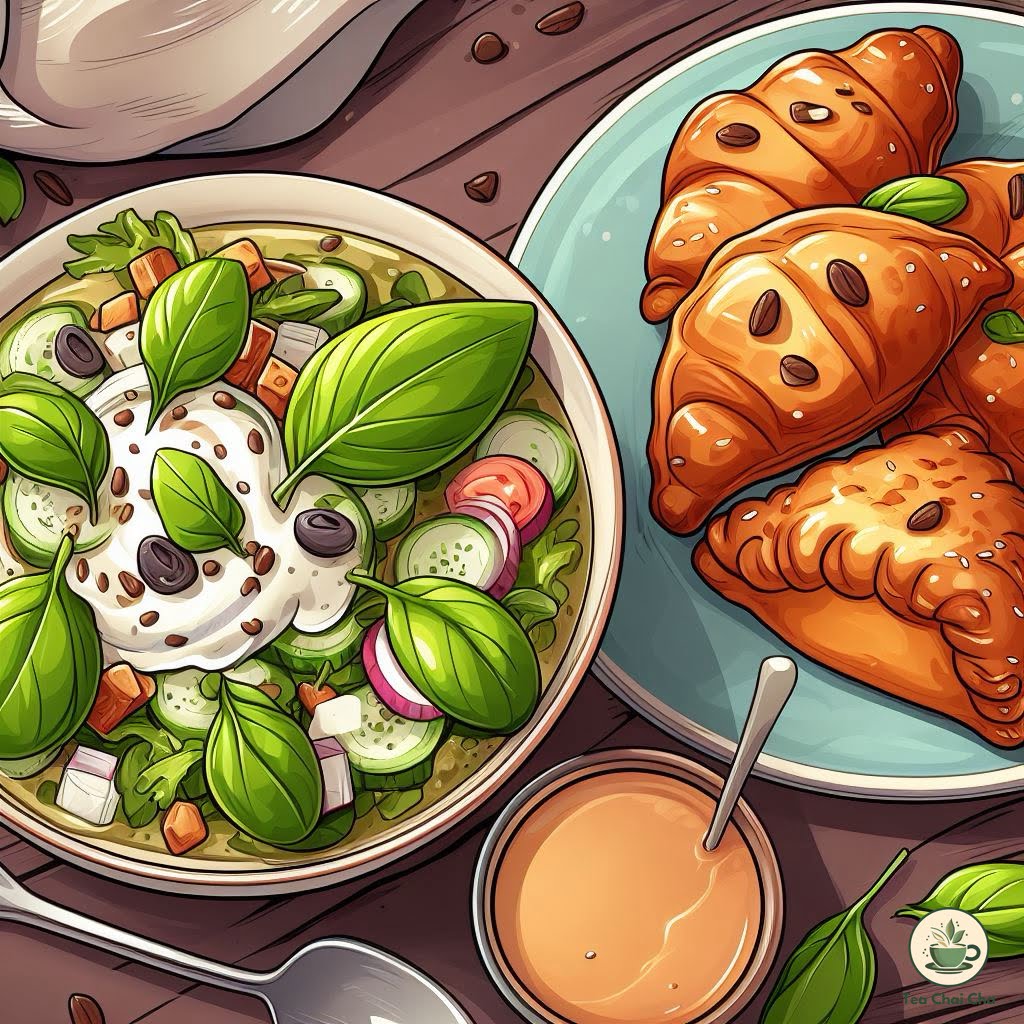
-> Herbal Companions for Chaga Tea
Herbal elements can be a wonderful match with Chaga tea.
If you enjoy a touch of spice, consider pairing it with chai-flavored pastries or spiced nuts.
The warmth of chai spices, such as cinnamon, cardamom, and cloves, complements Chaga’s grounding taste.
Fresh herbs can also enhance your Chaga experience.
Savor it with a light basil or mint salad.
The aromatic herbs add a refreshing twist to your tea.
-> Nutty Notes with Chaga Tea
If you prefer nutty flavors, try snacking on almonds or cashews while sipping your Chaga tea.
Their mild nuttiness enhances the overall taste experience.
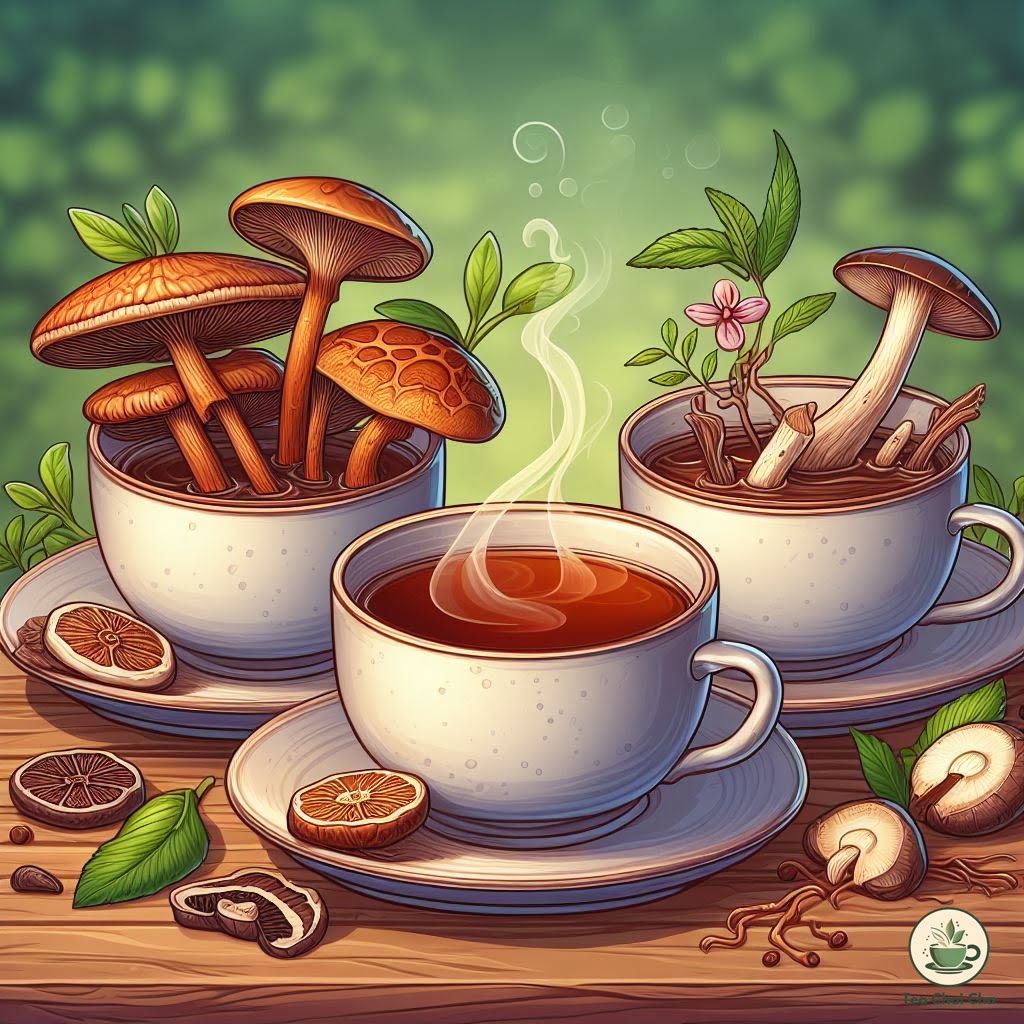
Other Teas That Taste like Chaga Tea
Enjoy the mild and earthy notes in chaga tea and looking for a change in routine?
Here are some other teas that you might enjoy based on my experience:
| Teas That Taste Like Chaga Tea | Flavor Profile |
|---|---|
| Reishi Tea | Earthy and robust |
| Shiitake Tea | Earthy with woody notes |
| Burdock Root Tea | Herbal with mild bitterness |
| Dandelion Tea | Earthy and slightly bitter |
| Cedar Tea | Subtle woodsy notes |
| Pine Needle Tea | Mildly woody and refreshing |
| Roasted Barley Tea | Nutty and roasted |
| Hojicha | Roasted with a hint of nuttiness |
| Chai Tea | Spiced and complex |
| Cinnamon Tea | Aromatic and spicy |
| Rosehip Tea | Fruity and slightly tangy |
| Hibiscus Tea | Fruity with a hint of tartness |
-> Teas with Earthy Flavors
If you enjoy the earthy taste of Chaga tea, you might want to explore teas like Reishi tea and Shiitake tea.
These teas, like Chaga, have a robust and earthy flavor profile that can be quite satisfying for those who appreciate the natural, woody notes in Chaga tea.
-> Herbal Infusions
Burdock root tea and Dandelion tea are good options for those seeking herbal teas akin to Chaga.
They have a mild bitterness and earthy undertones, offering a similar herbal experience without the mushroom notes.
-> Mildly Woody Teas
If you’re looking for teas with a milder woodsy taste, consider Cedar tea or Pine needle tea.
These options provide subtle woody flavors, making them reminiscent of Chaga but with a lighter touch.
-> Nutty and Roasted Teas
Teas like Roasted barley tea and Hojicha can offer nutty, roasted notes that some Chaga tea enthusiasts might appreciate.
These teas are distinct but can appeal to those who enjoy Chaga’s roasted flavor.
-> Spiced Herbal Blends
For a unique twist, explore Chai tea or Cinnamon tea.
These teas incorporate various spices and herbs, offering a complex and flavorful experience that differs from Chaga but can be equally satisfying.
-> Fruity Herbal Teas
If you prefer a touch of fruitiness, try Rosehip tea or Hibiscus tea.
While they differ from Chaga, their fruity undertones can be a delightful change for your taste buds.
Do you find the taste of chaga mushroom tea to be pleasant? Let’s connect!
